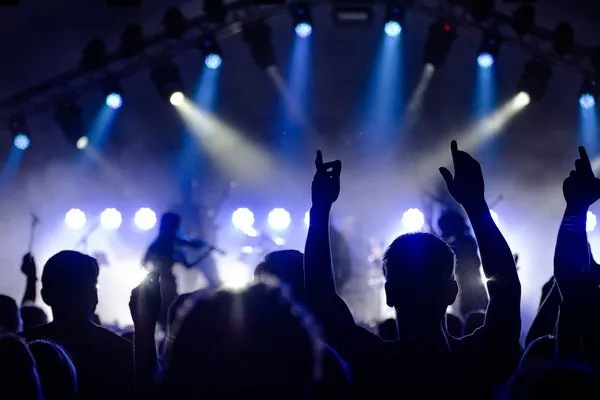The debate surrounding musical greatness often surfaces comparisons between different eras, genres, and cultural impacts. When asking, “Who is better, The Beatles or BTS?” it’s essential to understand the historical, social, and musical contexts that shaped these two iconic groups.
The Beatles, the British sensation that emerged in the 1960s, revolutionized music with their catchy tunes, experimental sounds, and cultural influence. Their impact on pop culture and music remains unparalleled even decades after their disbandment. Conversely, BTS, the South Korean boy band formed in 2013, has stormed the global music scene with their distinctive blend of K-pop, captivating performances, and an intensely dedicated fanbase known as the ARMY.
Musical Influence and Innovation
“Who is better, The Beatles or BTS?” In terms of musical influence, The Beatles’ legacy is undeniable. They pioneered various genres, experimented with unconventional recording techniques, and pushed the boundaries of what was considered mainstream music. Hits like “Hey Jude,” “Let It Be,” and “Yesterday” remain timeless classics, showcasing their songwriting prowess and musical innovation.
Conversely, BTS has redefined the contemporary K-pop scene, blending various musical genres with their own flair. Their tracks encompass themes of self-love, mental health, and societal issues, resonating deeply with their global audience. The group’s fusion of hip-hop, pop, and R&B, coupled with their electrifying performances, has propelled K-pop into the international spotlight.
Cultural Impact and Global Reach
When pondering “Who is better, The Beatles or BTS?” assessing their cultural impact is crucial. The Beatles were synonymous with the 1960s counterculture, influencing fashion, hairstyles, and societal norms. They were at the forefront of a cultural revolution, using their platform to advocate for social change, notably during the civil rights movement and the anti-war movement.
On the other hand, BTS has shattered language barriers, becoming a global phenomenon. Their influence extends far beyond music, with impactful philanthropic endeavors and partnerships with organizations like UNICEF, where they’ve promoted self-love and mental health awareness. Their fanbase, the ARMY, is renowned for its dedication, mobilizing for various charitable causes and social initiatives worldwide.
See Also: How Does Fast-Paced Music Affect the Brain?
Chart Success and Album Sales
The comparison of chart success and album sales in the context of “Who is better, The Beatles or BTS?” showcases the distinct eras and the evolution of the music industry. The Beatles dominated the charts during their time, achieving record-breaking sales and numerous number-one hits. Their album “Sgt. Pepper’s Lonely Hearts Club Band” is often hailed as one of the greatest albums of all time, setting a standard for artistic expression and musical storytelling.
In the digital age, BTS has capitalized on online streaming platforms, accumulating millions of streams and breaking records on platforms like Spotify and YouTube. Their albums consistently top global charts, with releases like “Map of the Soul: 7” and “Butter” achieving massive commercial success, illustrating their prowess in adapting to the evolving music landscape.
Artistic Evolution and Longevity
The longevity and artistic evolution of both groups are central to the debate of “Who is better, The Beatles or BTS?” The Beatles’ evolution over their relatively brief tenure saw them experiment with diverse sounds, transitioning from their early pop phase to more intricate and innovative compositions, leaving an indelible mark on music history even after their breakup in 1970.
In contrast, BTS continues to evolve, showcasing versatility in their music and performances with each new album. Their ability to reinvent themselves while staying true to their message and identity has been a key factor in their sustained relevance, promising a lasting impact on future generations.
Fan Engagement and Cultural Significance
The comparison between The Beatles and BTS in terms of fan engagement and cultural significance underlines the evolution of fan culture and the influence of social media. The Beatles had a massive fan following, leading to Beatlemania, characterized by frenzied crowds and devoted fans across the globe. However, their connection with fans was limited to traditional media and live performances.
BTS, leveraging the power of social media, has cultivated a deeply engaged fanbase. The ARMY’s devotion goes beyond streaming and attending concerts, actively participating in online fan communities, supporting social causes, and playing a significant role in BTS’s journey and success. The group’s strong rapport with their fans has redefined the dynamics of fan-artist relationships in the digital era.
Legacy and Timelessness
Ultimately, when contemplating “Who is better, The Beatles or BTS?” assessing their legacy and timelessness becomes pivotal. The Beatles’ impact on music and culture has stood the test of time, influencing generations of musicians and leaving an enduring mark on the fabric of popular culture. Their music continues to resonate with audiences of all ages, maintaining relevance even in the present day.
Meanwhile, BTS’s impact on contemporary music and their global influence positions them as frontrunners in the modern music landscape. While their legacy is still unfolding, their ability to transcend cultural barriers and inspire millions worldwide suggests a potential lasting legacy that could echo through the ages.
Conclusion
The question, “Who is better, The Beatles or BTS?” elicits diverse opinions rooted in personal preferences, cultural context, and the evolution of the music industry. The Beatles and BTS are monumental in their own rights, representing different eras, musical styles, and cultural landscapes. The Beatles laid the groundwork for modern popular music, while BTS continues to shape its future trajectory.
Ultimately, the debate of superiority between these two iconic groups may never have a definitive answer. Instead, recognizing and celebrating the unique contributions of both The Beatles and BTS to the world of music and culture allows for a deeper appreciation of their respective legacies, acknowledging their enduring impact on global audiences across generations.

























